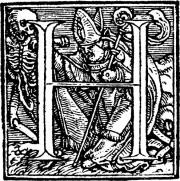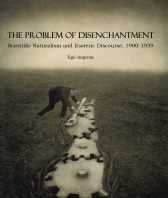 What happens to religion if the future belongs to the cyborgs? I’ve just written a weird essay addressing this topic, and am currently finishing up a lecture on the same topic for the Transhuman Visions conference in Piedmont on Saturday. The published piece is a response essay that I was asked to write for The Religious Studies Project, answering to an interview with the influential cognitive neuroscientist / evolutionary psychologist Merlin Donald. It’s a strange concoction of evolutionary theory, cultural history, futurist forecasting, transhumanism, distributed cognition, extended mind hypothesis, and cognitive science of religion. Pretty speculative all over, in fact, but fun to write. Check it out if you’re into that sort of thing. The talk to the transhumanists is going to be even more speculative, so you’re warned!
What happens to religion if the future belongs to the cyborgs? I’ve just written a weird essay addressing this topic, and am currently finishing up a lecture on the same topic for the Transhuman Visions conference in Piedmont on Saturday. The published piece is a response essay that I was asked to write for The Religious Studies Project, answering to an interview with the influential cognitive neuroscientist / evolutionary psychologist Merlin Donald. It’s a strange concoction of evolutionary theory, cultural history, futurist forecasting, transhumanism, distributed cognition, extended mind hypothesis, and cognitive science of religion. Pretty speculative all over, in fact, but fun to write. Check it out if you’re into that sort of thing. The talk to the transhumanists is going to be even more speculative, so you’re warned!
Religion in the Age of Cyborgs. An essay and a lecture
The URI to TrackBack this entry is: https://heterodoxology.com/2014/02/26/religion-in-the-age-of-cyborgs-an-essay-and-a-lecture/trackback/






I don’t get the generally unscientific fascination with “extinguishing” the “religious impulse” that is both accepted in and pervades a lot of meta-religious discussion. It seems more like a lapse or an indulgence on the part of academics, who should – by the very irreligious nature of academia – be disinterested.
I understand the cyborg paper as speculative and what William Blake would call a “fancy”, and as such is it very interesting. I just don’t get that so many academics – in your brief outline of the theories of religion – seem to pine for the very naive “post-religious” state.
Or maybe I’m doing the failed reading here, and confusing your observation on “overcoming religion” with a mission statement. The language of “overcoming” just seems a bit tendentious?
All the best,
Kristian
Hi Kristian. Sorry for getting back to you so late. I’m not sure who exactly you’re referring to. Perhaps my speculative essay on the Religious Studies Project left too much to the imagination. It was an attempt to look humorously at just how difficult it would be to quench the very capacity for the sorts of cultural praxis we call “religion”. The implicit target is not so much scholars as a certain brand of new atheists, and the infusion of those ideas into transhumanism.
Hi,
Yeah it wasn’t necessarily aimed at you. Merely at the fact that it’s more frowned upon often that academics in religious history have a faith than that they are anti-religion. Your essay merely made me think of that annoying fact.
Maybe this is not something you find?
All the best,
Kristian
Okay, I get that. It’s probably true that at the top of the discipline at least (top journals, conferences, societies) you’re more likely to look suspect for being actively involved with a religious group than being an active secularist or atheist. But on the whole I think the balance is different depending on where you are in the world, often from department to department (or even corridor to corridor within a single department). Furthermore – that there may be a bias at the top has its own, and in my view quite understandable, history.
[…] that I regret having to miss is the newest initiative of the Brighter Brains Institute (the guy[s] who do the Transhuman Visions series): “Religion and Transhumanism”. I’ve been writing and speaking about this topic […]